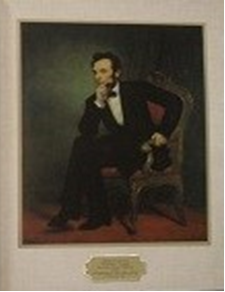Vice President Gerald R Ford | |
Type Of Activity | Political
Appointment |
Location | |
Location | Washington
DC |
Date of Activity | December 6, 1973 |
Coordinates | |
Vice President Ford sworn into Office 6 Dec 1973
Gerald R. Ford's appointment as Vice President in 1973 was a significant event in American politics. After Spiro Agnew resigned from the position due to charges of bribery and tax evasion, President Nixon had to nominate a new Vice President, and he chose Gerald Ford, who was the House Minority Leader at the time.
This appointment made Gerald Ford the first person to be appointed to the vice presidency under the terms of the 25th Amendment to the US Constitution, which provided for the appointment of a Vice President in case of a vacancy in the office. Before the amendment's ratification in 1967, the President had to nominate a new Vice President, and the nomination had to be confirmed by both the House of Representatives and the Senate. Ford's appointment demonstrated the importance of choosing a Vice President who is respected and trusted by both parties, as he was able stabilize the Nixon administration during a tumultuous time in American history.
Ford
was a popular and respected member of Congress, known for his integrity and
bipartisanship. He was also seen as a steady and reliable figure who would help the Nixon administration, which was
facing multiple crises, including the Watergate scandal.
Ford's appointment was a pivotal moment in American history. His leadership helped the country navigate a difficult period, and his commitment to integrity and honesty set an example for future leaders to follow. Prior to his appointment, Ford had served as a congressman from Michigan for 25 years and had been the House Minority Leader since 1965. His selection was seen as a move to bring stability to the White House, which was reeling from the Watergate scandal.
Although some members of Congress expressed concern that Ford was not the right person for the job, he was confirmed by the Senate with a vote of 92-3.
 |
| President Nixon
announces pending appointment of Gerald
Ford as VP |
The
unusual chain of events that lifted Gerald Ford to the Oval Office began in
1972 when operatives connected to President Richard Nixon’s re-election
campaign broke into the Democratic National Committee headquarters at the
Watergate Complex in Washington, D.C.
I had arrived in Key Biscayne around
the time that the break-in occurred and just in time for the 1972 Republican
Convention in Miami.
As
the scandal came to light, the Watergate break-in became the lead story every
day in 1973, and a number of high-ranking Nixon administration officials knew
about the break-in, and the president himself took part in efforts to cover up
the illegal activities that became known as the Watergate scandal.
On October 12,1973 President Nixon announced his intention to
nominate Congressman Gerald R. Ford for confirmation by the House and the
Senate to the position of Vice President. Following the announcement, made live
from the White House East Room, a reception was held in the Blue Room. This was
the first time the 25th Amendment to the Constitution (ratified in 1967) was
applied.
Gerald
Ford, a Republican from Michigan, was sworn in as Vice
President of the United States on December 6, 1973, following Spiro
Agnew's resignation.
In the months
after his confirmation as vice president, Ford continued to support Nixon's
innocence with regards to Watergate, even as evidence mounted that the Nixon
administration had ordered the break-in and subsequently sought to cover it up.
In July 1974, after the Supreme Court ordered Nixon to turn over
recordings of certain meetings he had held as president, the House Judiciary
Committee voted to begin impeachment proceedings against Nixon. After the
tapes became public and clearly showed that Nixon had taken part in the
cover-up, Nixon summoned Ford to the Oval Office on August 8, where Nixon
informed Ford that he would resign. Nixon formally resigned on August 9, making
Ford the first President of the United States who had not been elected as either
president or vice president.
Gerald Ford took the office of Vice President just a month before I was discharged, so I never had an opportunity to support him like I had supported Vice President Agnew. As Vice President, Ford remained mostly in the background, supporting President Nixon's policies and initiatives.
Vice President Gerald Ford and his wife, Betty Ford, had three sons and one daughter. The Vice President Family struck many Americans as fun, energetic, youthful, and, above all, normal traits that added to the American public's comfort level with Ford.
The Fords' oldest son, Michael Gerald Ford was born in Washington, D.C., on March 14, 1950, John "Jack" Gardner Ford, was born on March 16, 1952, in Grand Rapids, Steve Meigs Ford, born in Grand Rapids on May 19, 1956, and daughter Susan Elizabeth Ford born in Washington, D.C., on July 6, 1957
Gerald Ford would become the 38th President of the United States beginning
on August 9, 1974, upon the resignation of Richard Nixon.
















